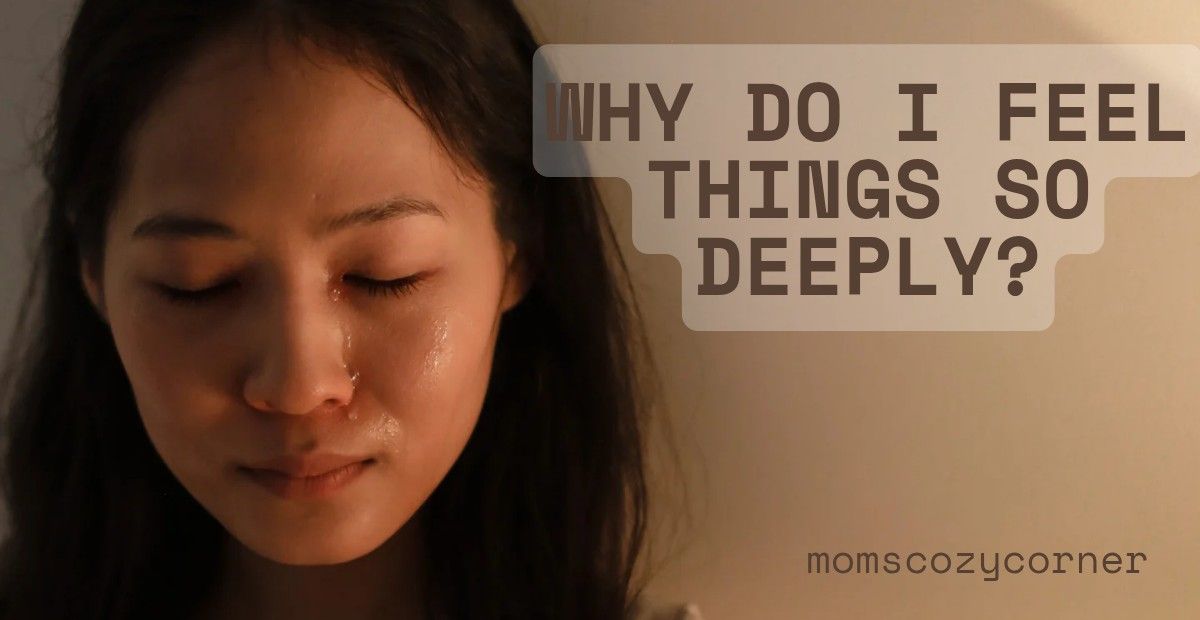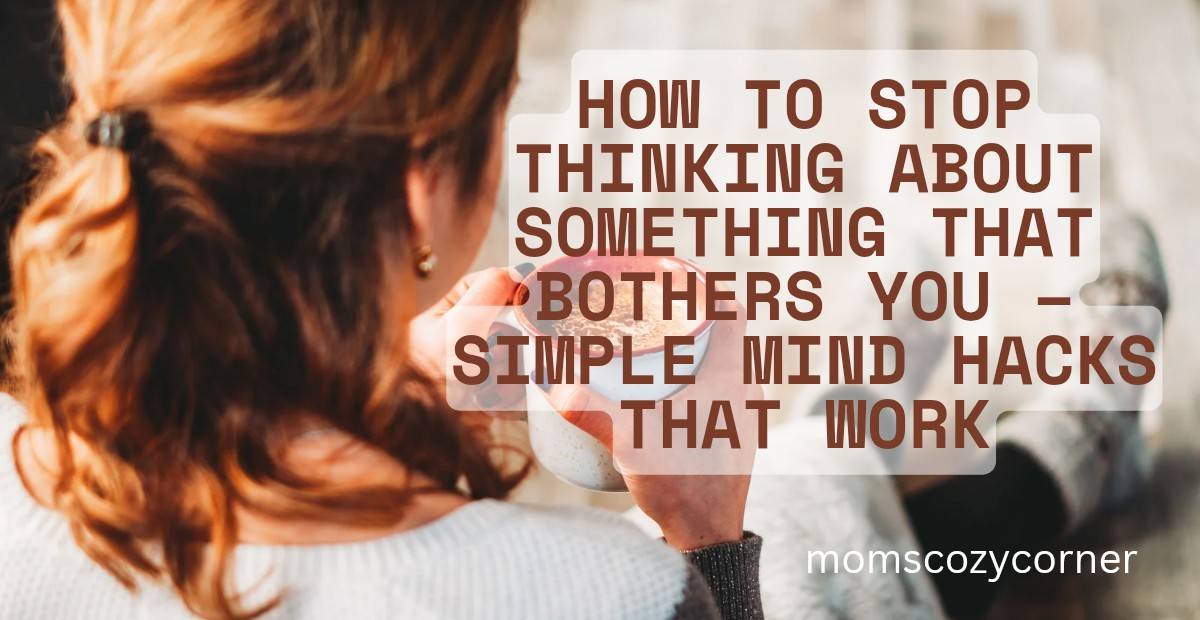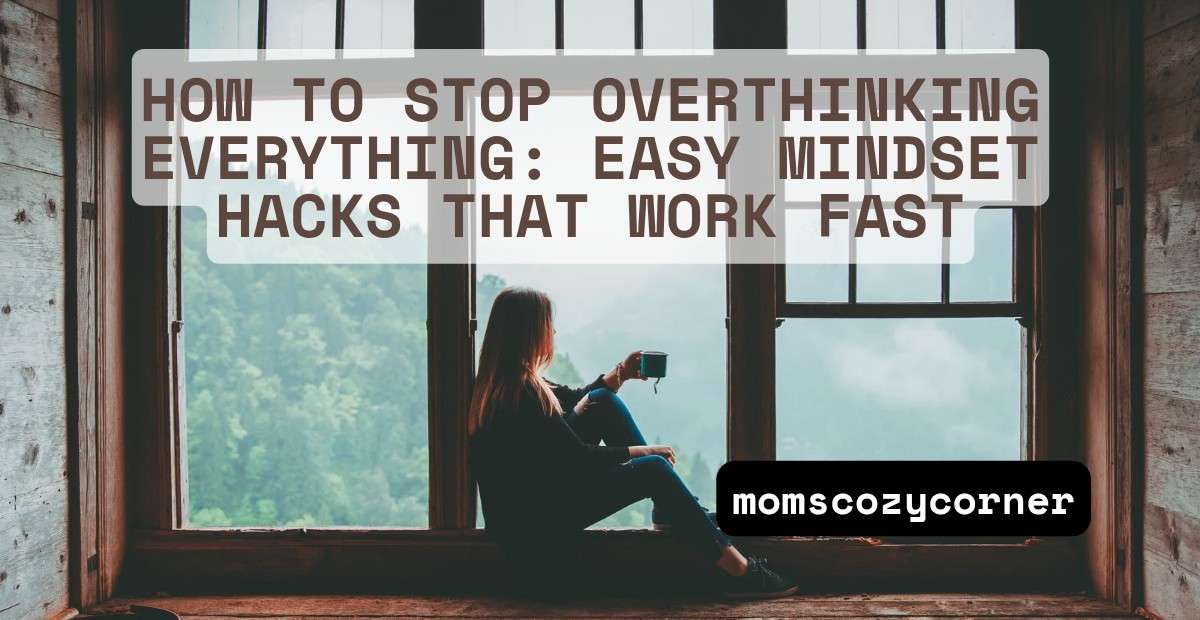Why Do I Feel Things So Deeply? Turn Sensitivity into Strength
Introduction
One day, my mom called me, upset because my brother hadn’t been talking to her properly for two days. She didn’t know why, but it really hurt her. I tried to comfort her, but after the call, I couldn’t stop thinking about it. I have my own life, my own problems—so why am I losing energy over theirs? Loving them is one thing, but worrying alone doesn’t help. If you ever feel things too deeply, like me, this article is for you.

Understanding Emotional Depth
That phone call with my mom made me realize something—I wasn’t just worried; I was drained the whole day. My emotions were so tied to their problem that it felt like my own. That’s when it hit me: I’m a deeply feeling person, and sometimes, that side of me can get in the way. Understanding this is the first step. As you read the points below, you’ll see whether you might also be someone who feels emotions this deeply.
What Does It Mean When You Feel Everything So Deeply?
I once had a friend tell me she couldn’t take the breakup of Selena Gomez and Justin Bieber. She said, “They were made for each other, and seeing them apart breaks me apart.” Honestly, I didn’t think she was being ridiculous. I understood her—because even though it’s their life, her emotions were tied to their story.
And I feel the same way when I watch Titanic. It’s just a movie, but my heart still aches every time Jack lets go or when Rose drops the necklace into the ocean. That’s what it means to be a deeply feeling person—you don’t just watch, you live it.
It shows up like this:
- You feel their happiness as if it’s your own.
- You feel their sadness deep in your chest.
- You carry their pain and nervousness inside you long after the moment passes.
That’s me, and maybe that’s you too… feeling it all a little too much.
Why Moms Feel Things So Deeply
As moms, we’re naturally loving and caring. Even when we’re tired, stressed, or not feeling well, we still find a way to put meals on the table and show love to our family. That’s just our nature—we carry so much inside us but rarely let that pressure fall on them. So, it’s not surprising that we often feel emotions deeply.
Once, when I went to pick up my daughter from school, I saw a teacher scolding a seven-year-old boy very harshly. I didn’t know the reason, but it hurt me to watch. I kept thinking—why couldn’t she just talk kindly? Even though he wasn’t my child, I felt bad for him. Maybe it’s because I’m raising kids too, and I couldn’t help but imagine what if it was my daughter in his place someday. That’s the heart of empathy—we moms can’t help but relate.
This kind of sensitivity shows up in so many ways:
- We feel another child’s pain as if it could happen to our own.
- We get emotional when we see kids struggling, even if they’re strangers.
- We connect other people’s experiences to our children’s future.
That’s empathy in action, and it’s one of the reasons moms often feel things more deeply than anyone else.

Signs You Might Be a Deeply Feeling Person
Being a deeply feeling person isn’t a weakness—it’s actually a beautiful gift. Not everyone can step into someone else’s shoes the way you do, and that’s what makes you special. Here are a few signs that might sound familiar:
1. Even commercials make you cry—you’re tearing up during that classic Budweiser ad where the horse reunites with its old friend, or when you see a touching Super Bowl commercial. (Yeah, you’re not alone—we’ve all been there with the tissues).
2. Cartoons hit you right in the heart—when Simba gets left alone in the forest in The Lion King, your chest tightens and you just want to scoop him up and hug him.
3. You carry other people’s feelings—after a family gathering, you find yourself holding onto everyone else’s emotions, almost like you packed them in your own bag and brought them home.
4. Worrying about someone you can’t fix. Maybe someone shares they’re short on rent, and even if you can’t help, the worry sinks in and lingers.
5. Small things drain you. That’s not weakness—it’s your empathy doing its work. You don’t just see others’ feelings—you feel them.
And here’s the thing: being sensitive means you can be a safe place for your kids and a comforting shoulder for your friends. If you want to explore why these little triggers sometimes hurt so much, check out my post on why my feelings get hurt so easily. Yes, it can feel heavy sometimes, but it’s also what makes you uniquely strong and compassionate.

Why do I feel things more intensely than others?
Now that you understand what it really means to be a deeply feeling person and the signs that show it, let’s explore why you may feel this way. There are three main reasons—biological, psychological, and situational influences. Let’s look at them one by one.
Now that you understand what it really means to be a deeply feeling person and the signs that show it, let’s explore why you may feel this way. If you sometimes wonder, “Am I just being emotionally unstable?” then you’ll love my article Why Am I So Emotionally Unstable? Honest Answers & Simple Tips where I go deeper into that side of things.
Biological Reasons
Sometimes, the reason we feel things more intensely lies in the way we are naturally wired. Some people are simply born with a nervous system that picks up signals more strongly than others. This isn’t something they choose—it’s just how their body and brain are set up.
For example, I can see this in my elder daughter:
1. Startled by sudden noises: When she hears a loud horn sound, she immediately runs to me for comfort. Her body reacts strongly to sound, showing she is naturally more sensitive than others.
2. Deep emotional response to stories: When she listened to the story of Ferdinand the bull—the gentle bull taken for a bullfight—she broke into tears. Her crying went on non-stop for 10 to 15 minutes. This wasn’t just sadness; it was her deep empathy coming through.
These moments show that some people are simply born deeply feeling. Their biological makeup makes them more sensitive to both the outside world and the emotions around them.
Psychological Reasons
When I look back, I realize a lot of my “deep feeling for others” actually comes from the way I grew up. Childhood plays a big role here, and mine shaped me in ways I didn’t even notice until later.
Growing up as the firstborn, I often heard things like, “She’s so kind,” “She takes care of her sister and brother,” and “She’s really responsible.” When people around you keep saying those things, it slowly registers in your mind—you start believing, “Maybe I was born to be kind.”
But honestly, I wasn’t like that in my earliest years. My parents used to say I was pretty stubborn and didn’t really care much about what others thought. Things started to change when I became an elder sister. Suddenly, being responsible and taking care of my siblings felt like part of my identity.
Over time, that role shaped me into someone who feels deeply for others—sometimes to the point where I put their needs above my own.
In a way, that’s where my “people-pleaser” side comes from too. And while kindness is beautiful, I’ve also realized I need to balance it so I don’t lose myself in always pleasing others.
Situational Influences
You know, there was this one night that just sticks in my mind. My second baby was so cranky that night, crying on and off, and I was already drained. I had just finished feeding her and emptied my water bottle. It was midnight, everyone else was sleeping peacefully, and I was sitting there thirsty, tired, and holding a baby.
So I nudged my husband and asked him to fill my water bottle. He said, “Yeah, I’ll fill it.” But instead of getting up, he went right back to sleep. A few minutes later, I woke him again. He mumbled, “Just two more minutes,” and dozed off again. By that time, I was boiling inside. I wasn’t just mad; I was hurt. I couldn’t help but feel deeply disappointed—like, why can’t he just get up the first time I ask? Why doesn’t he care that I’m struggling here at midnight with a baby?
Finally, after a while, he did wake up and get the water. But honestly, the feeling of being ignored stuck with me more than the water itself. That’s what hurt me.
- I wasn’t just thirsty; I was emotionally exhausted.
- What I really wanted was support, not just water.
- Him delaying again and again made me feel unseen.
- Even a small act of care at that moment would’ve meant a lot.
Small Triggers Causing Frustration
Frustration doesn’t always come from big things. Sometimes, the tiniest moments in our daily life trigger us, and we don’t even realize it—it’s because we’re deeply feeling moms.
- I bumped my leg on the cot while grabbing a towel, and I instantly blamed my husband.
- Kids running and shouting makes me shout too, even before anyone gets hurt.
- My husband spent an hour and a half searching for a magazine out of love, but I felt frustrated thinking it was a waste of time.
These little moments pile up, and our emotions run deep.
Why Emotions Can Seem Sudden and Overwhelming
Even small moments can hit hard, especially in the early mom days.
1. I asked my husband to make my baby’s bed while she was in my arms. He started fluffing pillows and making the bed with so much noise—it felt overwhelming in that moment.
2. Nights of constant crying or feeding triggered me easily, and I couldn’t always control my frustration.
3. I often feel like my partner or others should read my mind and do exactly the help I need at that moment. If they don’t, I get frustrated.
I used to think I couldn’t emotionally handle these moments—but over time, I realized I can handle them better. It’s not our fault, and it doesn’t mean we’re wrong. If we work on these moments, we can create a calmer, happier life for ourselves and our families.
Extreme Reactions Toward Those We Care About
Sometimes crying or feeling upset is completely normal—it helps release stress. But for people who feel deeply, extreme reactions often happen toward someone they care about deeply.
If you notice that tears sometimes appear out of nowhere, you might find my post Why Do I Start Crying for No Reason? helpful. It dives into why these sudden emotions happen and gentle ways to manage them.
Back in school, I was very close to one of my friends. I was possessive and didn’t like it when she gave priority to others. Even small misunderstandings would make me cry and feel upset.
After school, when we went to different universities, I didn’t cry as much. Extreme reactions often happen toward a particular person we care deeply about.
You can see this in your life too—whether it’s with your partner, kids, close friends, or other loved ones.
Managing Emotional Reactions
As deeply feeling moms, our emotions can flare up quickly, often over the smallest things. Managing these reactions doesn’t mean being perfect—it’s about understanding our triggers, practicing patience, and applying strategies that actually work. For me, the first step is recognizing what triggers me. Most of the time, it’s not the big things but small moments with my kids or minor misunderstandings with my husband.
Identify your triggers
I pay attention to the moments that frustrate me the most and remind myself how I could react differently next time. Over time, this repetition registers in my mind, helping me respond in a calmer way.
Pause and don’t react
This is a powerful strategy I learned from a mom page on Instagram. Staying calm without reacting immediately can completely change the situation. For example, tonight my elder daughter wanted chapati for dinner, but I had prepared pancakes. She kept insisting, first stubbornly, then begging, “I want chapati!” I didn’t react; I just stayed calm. I told her, “Okay, then leave it. I won’t force you.” Then I fed her sister first. While I did that, my elder daughter started eating on her own. Staying calm and not forcing her allowed the situation to resolve naturally.
Reconnecting whenever possible
We all have people we care deeply about—our kids, partners, or close friends. Sometimes, small misunderstandings or their behaviors can affect us more than we expect. One way to ease that emotional weight is by reconnecting with them frequently, even in tiny ways. A smile when passing your husband, a little joke, saying “I love you,” or dancing together before the kids—these small moments help. Playing a quick game like “guess which hand” with the kids, or giving them a little hug or cuddle, also makes a big difference. Doing these things very often will reduce the number of deeply felt incidents, making daily life calmer and happier.
Communication in relationships
In my relationships, I used to spill my emotions instantly—my happiness, my frustration, my tears, my sadness, everything—without thinking. If you’re wondering how to balance that intensity and handle emotions without hurting your bond, you might find my article on how to control your emotions in a relationship really helpful. I tend to feel deeply, and that intensity often came rushing out without pause. My husband, on the other hand, is calm and composed. At first, I felt frustrated that he didn’t react the way I expected, but over time I realized this balance actually helps. Because he stays calm, our small misunderstandings don’t turn into arguments. I’ve learned to lower my voice, pause for a moment, and really think about my feelings. This helps me become more emotionally aware and respond in a better way most of the time.
Doing what you love
I heard a lot of people talking about self-care, but I’m not that kind of person who focuses only on self-care. I realized that just self-care alone doesn’t reduce stress or frustration. What really helps is doing what we truly love. For me, it’s reading books, gardening, or spending time doing things I enjoy. These are the things that make me feel calm, happy, and less frustrated. It’s not about following someone else’s advice—it’s about doing what actually works for you.
Managing emotional reactions is not a hard thing, though it may feel like it sometimes. The strategies may vary from person to person. There are so many strategies out there on the internet, but you have to see what works for you. Some people feel better when they cry alone, while others like to share their feelings. Some need to release frustration immediately, and for others, it works better to process slowly. You just need to understand yourself and decide what feels right. Doing it in your own way is the best way to manage your emotions and feel lighter, calmer, and happier every day.

How to Stop Feeling Things Deeply: A Guide to Building Emotional Resilience
If you’re reading this, you probably want to stop feeling things so deeply. But don’t get me wrong—understanding others’ feelings is actually a great thing. Most people out there don’t even notice how their close ones feel. So don’t try to destroy that rare, special way you feel.
The goal here isn’t to stop feeling—it’s about managing your emotions so that you don’t get overwhelmed or hurt by them all the time. Learning how to handle those intense feelings will help you take care of yourself while still being the caring, deeply feeling person you are.
If you’re looking for that kind of solution, the points below will definitely help you out.
Developing Thicker Emotional Boundaries
This is like setting boundaries for your mind. Not like when your friend shared a story, you know, a sad incident or a misunderstanding she had with her husband, and you felt like you needed to absorb it. You generally act like a sponge—if there is happiness around you, you absorb that; if there is stress around you, you absorb that too. This doesn’t mean you have to stop listening to others’ problems. You can hear it through your ears without passing it to your heart. Keep that in mind and remind yourself always when setting that boundary in your mind.
Self-care Routines for Emotional Stability
Self-care is not just about physical care; it’s about doing things that truly make us feel good. Some days it might be shopping, other days just sitting quietly—it changes with time and mood. But one thing that never changes for anyone is the need for good-quality sleep. I’ve noticed many times that when I don’t sleep well, I feel deeply exhausted and emotionally unstable. Once, after a sleepless night, I almost lost control with my daughter, so I asked my husband to step in while I rested. That simple sleep brought back my calm and emotional balance.
When you feel everything so deeply, it’s easy to lose yourself while taking care of everyone else. That’s why learning how to focus on myself and still love my family deeply can be such a game-changer—it shows that putting yourself first doesn’t mean loving your people any less.
Long-Term Strategies
There are many strategies out there, but what truly matters are the ones that bring long-term results. When you learn something in a behavioral way with your kids, you can often apply the same with your husband too. This practice matures you over time. I stopped reacting immediately when my kids threw tantrums and later applied the same with my husband. The difference is clear—I feel calmer, problems resolve faster, and I bounce back emotionally. Long-term strategies like this make us stronger, steadier, and more grounded inside.
When to Seek Help
The next step in healing is knowing when to seek help. Everyone’s life is different—what I go through isn’t the same as what you face. We may both be sensitive, but our situations are never identical. If you’ve tried different strategies and nothing works, and it starts to affect your family or your own well-being, it’s time to reach out. Think of it like this: when we feel sick, we see a doctor without hesitation. Yet for emotional struggles, we often hold back, fearing judgment. Don’t. Getting help is more common now, and it’s about caring for yourself and your family.

Final Thoughts
Feelings can weigh us down, but shutting them off isn’t the answer. It’s about finding small, healthy ways to work through them.When we allow ourselves to feel deeply, we actually start to heal and grow. Just like the sun, when we shine, we spread warmth and love to those around us—especially our little ones. But to shine, we have to care for ourselves first.
I’m not a professional, just a mom sharing what’s helped me in my own messy, beautiful journey. Maybe some of these tips will spark something for you too. Thanks so much for reading, Mama—it truly means the world.





